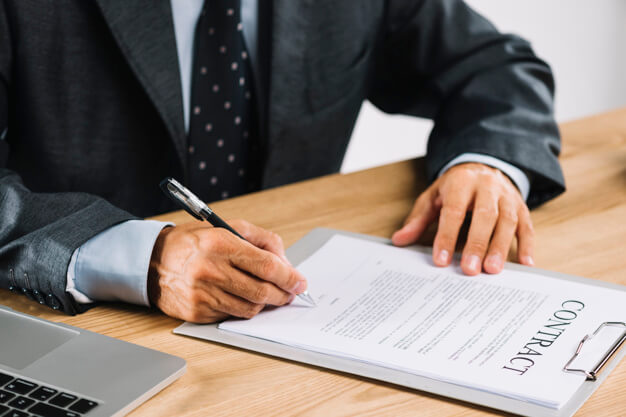The UK’s been a hot spot for people wanting to put money into property for ages. From London’s busy streets to Scotland’s pretty views, people from all over – investors, expats, even those buying abroad for the first time–see the UK market as a good, safe bet.
What makes the UK especially appealing is its openness — there are no legal restrictions preventing foreigners from buying property. Irrespective of whether you’re an overseas investor seeking rental income or dreaming of a cozy home in the British countryside, the UK welcomes foreign buyers with relatively straightforward legal procedures.
In this article, I will talk about the following things:
- Can foreigners buy property in UK?
- Point System for purchasing property in the United Kingdom.
- Eligibility for foreign buyers.
- Financial considerations foreigners should make.
- Practical steps foreigners should take when purchasing property in the UK.
Therefore, if these are a few things that you need to know, keep reading this article till the end…
What Is The Point System In Property Purchase?
When discussing can foreigners buy property in UK, one key step is understanding the point processing system involved in completing a property transaction.
This process typically includes several critical points — from property search and offer submission to mortgage approval, contract exchange, and final registration with the HM Land Registry.
Each point represents a legal and financial checkpoint designed to ensure the transaction is legitimate and transparent.
For international buyers, having a UK-based solicitor or conveyancer to handle these stages is vital to prevent delays and ensure compliance with local laws. This system allows foreign buyers to complete their purchases remotely while still meeting all legal obligations under UK property law.
Legal Eligibility For Foreign Buyers
When it comes to eligibility, here are a few things that you need to know:
1. Ownership Rights
Folks from other countries can totally buy, own, and sell land and homes in the UK. They don’t need any special permission from the government.
They can own property outright (freehold) or just for a set amount of time (leasehold).
Buying and selling homes is open and honest and follows English property law. This law protects buyers by registering their ownership with HM Land Registry.
2. Residency And Visa Requirements
Even though property ownership is allowed to anybody, a property in the UK does not provide residency or immigration rights. You will need a valid immigration status to reside in the property.
The UK Visas and Immigration has encouraged the following visas for residence:
- Investor Visa (Tier 1) – for those investing £2 million or more.
- Skilled Worker Visa – for a professional employed by the UK company.
- Innovator or Start-up Visa – for a person who wants to establish a business.
Thus, while residency may not require citizenship, you do need to satisfy immigration rules to live in the property.
Financial Considerations Foreigners Should Know
It is very important that you are able to think about the financial considerations when you are trying to buy a property in the UK as a foreigner. Here’s what you should know:
1. Deposit And Mortgage Options
Mortgages are available to overseas buyers in the UK, but banks may impose stricter criteria on non-residents than others. Generally, lenders will request a deposit of anywhere between 25% – 40% of the property’s values.
Some UK and international banks offer non-resident mortgages, but they typically charge higher interest rates and require additional paperwork.
If you have UK income or assets already, you may have a higher chance of getting approved for a mortgage. You should work with a broker that specializes in clients from overseas.
2. Additional Costs
Apart from the property price, foreign buyers should budget for several other things. According to The Law Society Conveyancing Guide, here are a few additional costs that foreign buyers should keep in mind:
- Legal fees: Usually 1–2% of the property’s value.
- Survey and valuation costs: To assess the property’s condition.
- Currency exchange fees: Especially if transferring large sums internationally.
- Land Registry and conveyancing fees: Required for ownership registration.
Factoring these expenses ensures you have a realistic view of the total investment.
Taxes And Ongoing Obligations
Apart from finance, you should know about other responsibilities and the tax (yes, you simply cannot forget that). Here’s what you need to know:
Stamp Duty Land Tax (SDLT)
In England and Northern Ireland, buyers need to pay Stamp Duty Land Tax (SDLT) when they are purchasing property. If a buyer is not a resident, there will be an additional 2% surcharge on top of the standard rates for SDLT.
For example, properties that fall in the price range of between £250,001 and £925,000 have a charged rate of 5% + 2% surcharge for foreign buyers.
According to GOV.UK SDLT, Scotland and Wales have their own systems (Land and Buildings Transaction Tax (LBTT) and Land Transaction Tax (LTT)).
Capital Gains Tax (CGT)
If a foreign owner sells UK property for a profit, they are liable for Capital Gains Tax (CGT) on the gain made since purchase. Non-residents must report and pay CGT within 60 days of sale completion.
CGT rates generally range from 18% to 28%, depending on income level and property type.
Inheritance Tax
Non-residents may also face UK Inheritance Tax (IHT) on UK property upon death, regardless of domicile status. According to HMRC, the current IHT rate is 40% on estates above £325,000, though tax reliefs and double taxation agreements may apply depending on the buyer’s country of residence.
What Are The Regional Variations?
There are certain regional variations that you should keep in mind. These are as follows:
1. England, Scotland, and Wales
Each part of the UK has unique property laws and tax structures:
- England & Northern Ireland: SDLT applies.
- Scotland: Uses the Land and Buildings Transaction Tax (LBTT) system.
- Wales: Uses the Land Transaction Tax (LTT) system.
While legal procedures are broadly similar, tax thresholds and rates vary slightly across these regions.
2. Popular Areas for Foreign Investment
Foreign investors are often drawn to:
- London: For luxury flats, rental return, and global visibility
- Manchester and Birmingham: For investment affordability and solid rental markets
- Scotland: Particularly Edinburgh and Glasgow, which have stable returns and lower prices than other UK regions.
London, Manchester, Birmingham, and Scotland are attracting continued interest from overseas investors, as these are all expanding areas with healthy infrastructure.
What Are Some Practical Steps To Purchasing Property?
Here are some of the steps that you need to take when purchasing a property as a foreigner in the United Kingdom:
1. Property Search
International buyers should begin their search on leading websites such as Rightmove, Zoopla, and OnTheMarket.
Alternatively, you could engage an estate agent, preferably one with experience dealing with clients from other countries, to facilitate communication and to help you set a realistic price for the property you are interested in.
2. Legal Process
As usual, the legal process is best done properly and, according to The Law Society, should take the following steps:
- Make an offer through the estate agent.
- Retain the services of a solicitor/conveyancer to investigate and prepare the legal checks/contract, etc.
- When due diligence is complete and a mortgage has been approved, you can exchange contracts.
- You will then pay the deposit and complete on the completion date.
- Finally register your ownership.
In each case, having a qualified property solicitor is invaluable to ensure compliance with local legal or regulatory requirements.
3. Post-Purchase Considerations
Once you’ve purchased your property, you’ll need to manage it properly. This may include:
- Hiring a local property manager if you’re based abroad.
- Registering for landlord licensing if renting it out.
- Ensuring compliance with UK tax filing requirements annually.
Keeping up with property maintenance and tax obligations ensures your investment remains secure.
Read Also: How To Fight Eminent Domain And Protect Your Property Rights?
Can Foreigners Buy Property In UK? : Expert Tips And Best Practices
Knowing how it works, budgeting your money, and seeking advice from experts, foreigners are able to purchase real estate in the UK in a safe and confident manner.
Here are a few tips:
- Hire a solicitor early: They’ll help verify property ownership and prevent scams.
- Understand your tax liabilities: Especially CGT and inheritance tax.
- Consider currency risk: Exchange rate fluctuations can affect your budget.
- Do a property survey: Hidden repairs can cost thousands later.
- Seek financial advice: From experts familiar with cross-border property purchases.
If the question “Can foreigners buy property in UK?” has ever crossed your mind, the reply is affirmative – and with proper legal and monetary support, it can be an effortless and satisfying transaction.
















